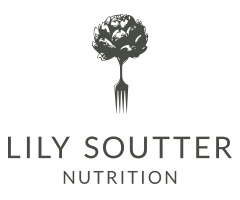According to research from The American Gut Project, our gut microbiota thrives if we aim to consume 30 or more different varieties of plant foods each week! By consuming a diverse range of plants within the diet, we can obtain a greater variety of antioxidants to support optimal health. However, if you’re bored of seeing the same fruit and veg in your local supermarket time and time again, then you could think about venturing out to the less well known foraged plants. But do these wild plants provide any additional health benefits?
For one, foraged plants will be devoid of fertilisers and pesticides, and some suggest that they come with higher antioxidant content. For example, Alaska’s wild berries come with a much higher antioxidant content in comparison to your regular farmed berry.[1] But what about the health benefits and nutritional value of other foraged foods, are they worth it?
*For safety reasons please always seek guidance when foraging for food!

Blackberries are not only easy to access in the UK, but they are also jam-packed full of vitamin C to support immune function and healthy skin. What’s more, they have a very low glycemic load, a number which predicts how quickly foods affect blood sugar levels. Opting for low glycemic load fruits can be a good option for balancing blood sugar.
Elderberries
Wild berries tend to have higher antioxidant content in comparison to their farm-raised counterparts. Elderberries have been used in traditional medicine for hundreds of years, and in more recent times black elderberry has been utilised as a natural remedy for coughs, colds and flu symptoms.

Samphire can be foraged on the British Coast and can make the perfect accompaniment for fresh fish and lamb. This salty veg of the sea is very low in calories and is mineral dense providing high amounts of calcium, magnesium, phosphorus and even some iron.
Wild Garlic
With wild garlic being found across the UK, it is easy to access and can even be sourced in London. Garlic has been researched for potential benefits on cardiovascular health. Some preliminary studies suggest that wild garlic may have a greater effect on blood pressure in comparison to regular shop bought garlic.[2] However as this research has been conducted on animals and not humans, further research is needed to confirm these benefits.

You may think of dandelion leaves as a stubborn weed that is difficult to eradicate from your lawn or garden, however, these leaves have been used for centuries in traditional medicine. Not only are they an excellent source of vitamin A, K, but they also provide potassium, calcium, iron and magnesium. The leaves are also rich in antioxidants called polyphenols which are located in the root, leaves, stem and even flowers.
Dock Leaves
Commonly thought of as a traditional remedy for the sting of nettles. These leaves have long been used internally for viral infections within traditional medicine, however, there is a general lack of research around the health benefits of dock leaves.[3]
Purslane
A weed which can be found in field crops and on your lawn. Purslane can be used within cooking or as a pickle. Research has shown that purslane is more nutrient dense than major cultivated vegetables. It has been shown to provide a rich source of beta-carotene, vitamin C surprisingly even omega 3 fats 4.
References
- https://www.ncbi.nlm.nih.gov/pmc/articles/PMC3751288/
- https://link.springer.com/article/10.1023/A:1014417526290
- https://www.ncbi.nlm.nih.gov/pmc/articles/PMC3791396/
- https://www.ncbi.nlm.nih.gov/pmc/articles/PMC3934766/
Lily is a London Nutritionist who graduated from Newcastle University with a BSc (Hons) degree in Food and Human Nutrition (AfN accredited) where she was awarded the Sage Faculty for Excellence Scholarship on an annual basis. She then went on to complete a 2-year post graduate Diploma in Nutritional Therapy and is currently working towards her MSc in Nutritional Medicine (AfN accredited) at the University of Surrey. Lily’s extensive knowledge of the science of food and health, enables her to regularly write for The Times, The Telegraph, The Daily Mail, The Independent, Women’s Health and Cosmopolitan.
Her frequent TV appearances include ITV’s This Morning with Holly Willoughby and Phillip Schofield, and ITV’s primetime series Save Money: Lose Weight with Dr Ranj Singh. Lily’s passion is to simplify the science around nutrition, to provide health hacks and smarter eating strategies to empower people to enjoy a healthy and successful lifestyle. Her specialities lie in workplace wellness, implementing nutrition focused wellbeing programmes within corporate organisations across the UK.
Lily also sees individual clients from her clinic in Chelsea and a private medical practice based in Notting Hill.




Hi Lilly,
Thanks for this interesting article. I run a farm shop and am interested in finding out about the increased nutritional benefits of wild food. Can you point me towards any recent research?
Many thanks
Fred
Great post! Thank you for sharing!